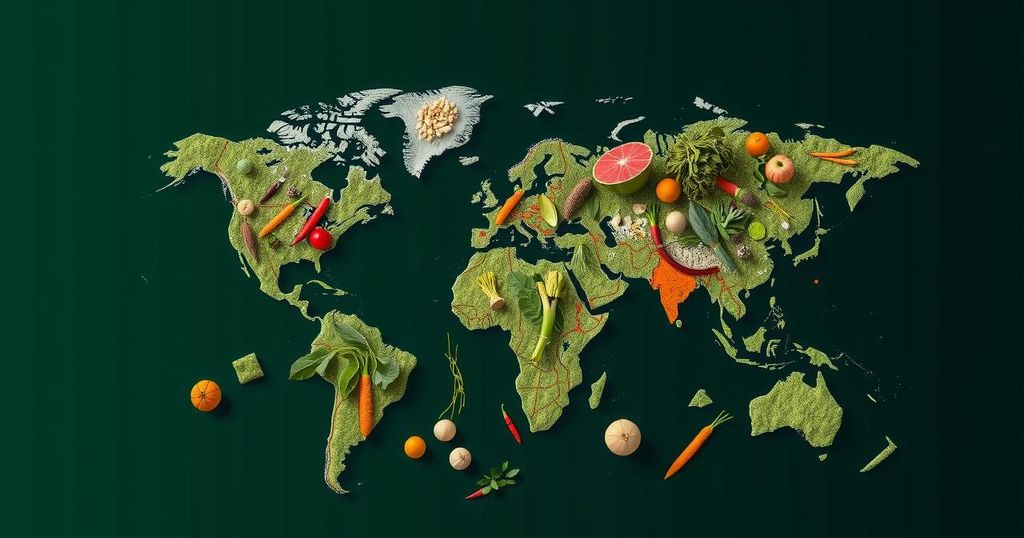A report by the Stockholm Environment Institute and Mistra Geopolitics highlights the risks to global food security posed by climate change and geopolitical tensions. It offers solutions such as enhancing national food production, promoting resilient agriculture, reducing food waste, and fostering international collaboration. The report emphasizes the need for adaptable policy responses to navigate transboundary climate risks and enhance global food systems in light of existing conflicts.
A groundbreaking report by the Stockholm Environment Institute and Mistra Geopolitics has elucidated the significant threats posed by climate change and geopolitical divisions to global food security. Identifying critical solutions, the report suggests that nations can bolster food production, engage in resilient agricultural practices, minimize food waste, and foster international collaboration. Published during the Food, Agriculture, and Water Day at COP29, the findings articulate the alarming interplay between escalating climate risks and geopolitical tensions, notably highlighted by conflicts such as the ongoing Russian invasion of Ukraine. As these dynamics unfold, the report emphasizes the urgency for countries to adopt adaptive and collaborative approaches to mitigate the impending food crises. Climate-related disasters, including floods and droughts, have increasingly threatened agricultural productivity and trade, raising concerns about escalating food prices and international accessibility. With 59 active conflicts recorded in 2023, the stressors on food systems are exacerbated, affecting not only local markets but also international supply chains. The effects of climate incidents in one region, such as floods in Pakistan, have been shown to disrupt food production as far away as the European Union, showcasing the interconnectedness of global food systems. Furthermore, data indicates that the pursuit of Sustainable Development Goal 2, aimed at eradicating hunger by 2030, is regressing, with an increase of over 100 million individuals suffering from hunger since 2019. One of the primary solutions identified includes enhancing domestic agricultural capacities that prioritize climate resilience, thereby reducing reliance on vulnerable global food markets. The report advocates for shifting dietary preferences towards more plant-based options and significantly reducing food waste to strengthen resource efficiency and availability. By fostering small groups of countries with aligned objectives, the report asserts that collaboration can effectively mitigate transboundary climate risks to food security. The authors advocate for multi-faceted strategies that encompass both local production enhancements and broader transnational partnerships to ensure the resilience of global food systems amidst heightened geopolitical tensions and climate disruptions.
The report addresses the intersection of climate change and geopolitical tensions affecting food security, a crucial concern due to its implications for social stability and global trade. Increasing climate disasters jeopardize not only agricultural yields but also the synergy between countries reliant on food imports and exports. Furthermore, the context of warfare, characterized by conflicts such as the Russian invasion of Ukraine, magnifies food insecurity by weaponizing trade and limiting access to essential supplies. As nations grapple with these challenges, the emphasis on sustainable solutions becomes ever more pertinent, reflecting a global commitment to protecting food systems and addressing hunger effectively.
In conclusion, the report from the Stockholm Environment Institute and Mistra Geopolitics presents a clear call to action for nations to respond to the multifaceted threats to food security posed by climate change and geopolitical divisions. By enhancing domestic agricultural resilience, fostering international collaboration, and adopting sustainable consumption practices, countries can better navigate the complexities of today’s global food landscape. Urgent adaptation and cooperative efforts stand as essential strategies for safeguarding food security for future generations.
Original Source: news.cision.com






